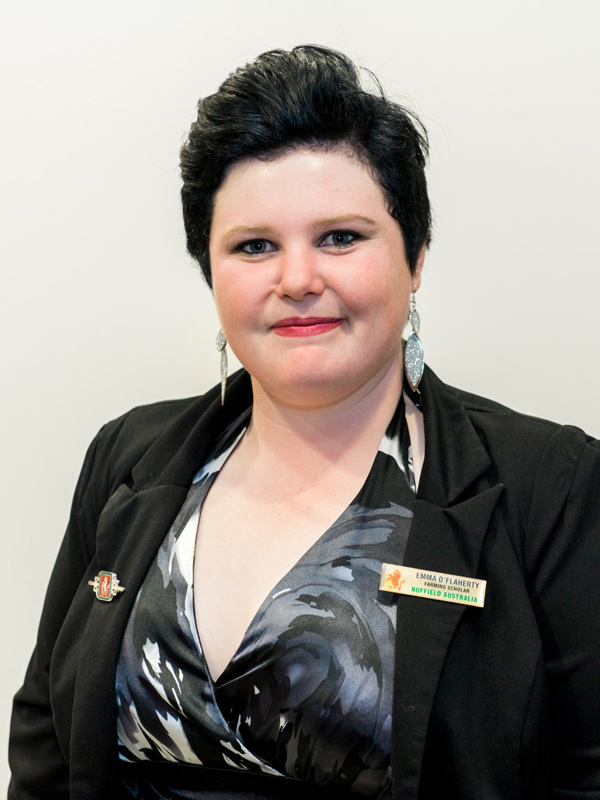
Sarah Sivyer

Increasing competitive advantage through customer value
By developing a greater level of customer intimacy, farming businesses are able to increase competitive advantage by creating customer value and instilling a culture of continuous improvement.
That’s according to 2018 Scholar and NSW based farmer, Sarah Sivyer, who with support from the NSW Department of Primary Industries, explored how global farming businesses are enhancing the three pillars of operational excellence, customer intimacy and product quality to generate more value for their customers. Travelling across Japan, Israel, the United Kingdom (UK), the United States (US), the Philippines, Italy, the Netherlands and Australia, Ms Sivyer visited entrepreneurial farmers to identify businesses that look to create customer value and instil a culture of continuous improvement. In the Netherlands, Ms Sivyer visited Marcel Dings, founder of Brookberry strawberry farm, who has fostered customer intimacy and used the insights to provide services that his customers greatly value.
“Mr Dings believes the distance between the customer and grower is too big, and the most effective way to ensure the business is able to meet customer expectations is to work with them to create value. He discovered one of the things his customers value the most is a direct line to him, and the ability to call in large wholesale orders in the morning that would be packaged and delivered to them later the very same morning.
For many farming businesses operating further along the supply chain, the differentiator stems from a robust understanding of customer wants and expectations.
“This has become a core area of focus for UK-based livestock producer, Kelly Bronze Turkeys, which actively engages with its customers to create value added products. Kelly Bronze also utilises customer data to better understand target demographic and economic trends to help anticipate customer needs.
Implementing processes and measures that help deliver outstanding product quality has also become a cornerstone of success for many farming businesses that have grown customer value and satisfaction. Travelling to Japan, Ms Sivyer met with the owner of Asai Nursery, Yuchiro Asai, who prioritises standardisation in his business to ensure consistent quality is maintained as per customers’ requirements and expectations.
“Each harvest trolley in the business is fitted with a tomato colour chart so employees are able to compare tomatoes and only harvest those in an appropriate colour range. Each employee undergoes harvest training and utilises the colour chart to ensure the correct plants are harvested. This has also enabled Asai Nursery to prevent mistakes, rather than having to deal with them at the completion of a large batch, minimising waste and defects. By continually enhancing its processes, Asai Nursery has been able to deliver on customer expectations for a consistently high-quality product and the reduction of waste. Farmers are naturally inclined to look for opportunities for improvement. Taking this a step further, there is significant potential for business growth in better understanding customer wants, needs and expectations, and actively creating a culture of continuous improvement within the business. Businesses deriving increased profitability from a greater focus on customer value have, to varying levels of maturity, begun implementing a culture of continuous improvement”.
“What I discovered through my Nuffield Scholarship, was that all the businesses I visited were not only leaders in product quality but also had developed a level of customer intimacy that created a competitive advantage. The key to deriving business growth from greater customer value, lies in identifying opportunities and creating an emotional connection with customers with the same energy that would go into pursuing improvements in production. This has become even more evident during 2020, with businesses facing significant pressures due to COVID-19. For many businesses, one of the benefits of delivering increased value for their customers has been greater resilience to the current challenging market conditions.”
Investor Information:
The Department of Primary Industries (DPI) works to increase the value of primary industries and drive economic growth across NSW. NSW DPI manages a broad range of initiatives from resource to industry, including natural resource management, research and development, pest and disease management, food safety, industry engagement, and market access and competition.
Website: www.dpi.nsw.gov.au
Twitter: @nswdpi






















